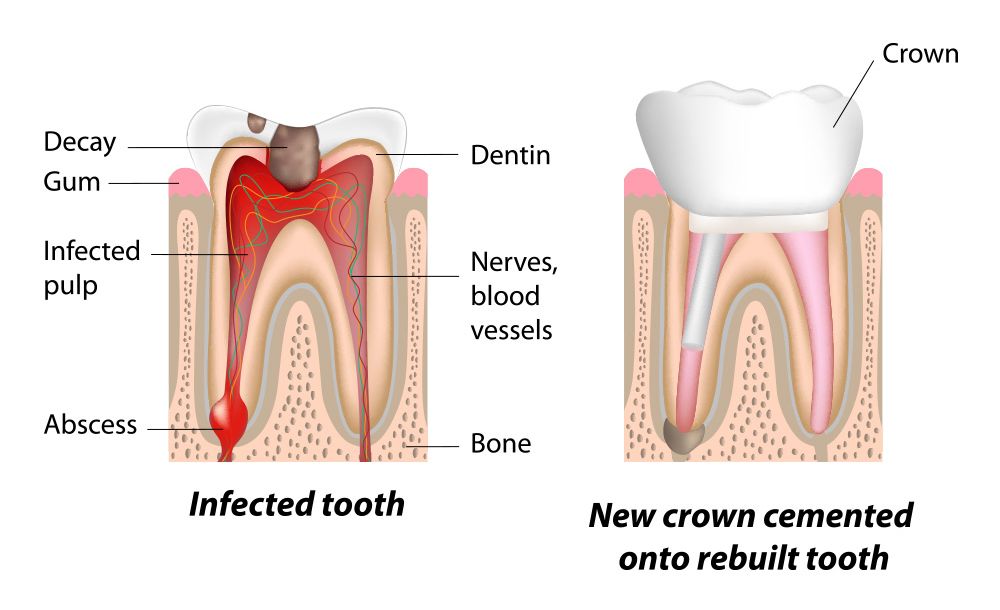Root Canal Infection Symptoms
 It’s important for seriously decayed or damaged teeth to be treated as soon as possible. Failure to treat the tooth in a timely manner could result in a root canal infection. While preventative care is always best, Dr. Eugene D. Stanislaus and Dr. Lisa Reid can perform root canal therapy (endodontic treatment) on infected teeth.
It’s important for seriously decayed or damaged teeth to be treated as soon as possible. Failure to treat the tooth in a timely manner could result in a root canal infection. While preventative care is always best, Dr. Eugene D. Stanislaus and Dr. Lisa Reid can perform root canal therapy (endodontic treatment) on infected teeth.
Many of our Brooklyn Heights and Fort Greene patients have heard of root canal infections before, but they are unsure what they actually involve. Our team would like to go over the basics of root canal infections and the most common signs and symptoms.
What Is a Root Canal Infection?
A root canal infection involves an infection of the pulp located within the tooth. When this pulp is infected, it can cause toothaches and dental abscesses. The spread of a root canal infection can cause severe harm to the jawbone, gum tissue, and adjacent teeth, which is why it’s important to bring the problem under control as soon as possible.
What Causes Root Canal Infections?
Bacteria normally resides in the mouth. Root canal infections occur when tooth decay or fractures to the enamel and dentin of a tooth allow bacteria to access the pulp inside of a tooth. Common causes typically include poor oral hygiene and injuries to the mouth.
Be mindful of these telltale signs of root canal infections.
Tooth Sensitivity
Many people who start to have root canal infections will notice that their teeth are sensitive to hot and cold temperatures. Keep that in mind while enjoying a meal or having a beverage.
Pain and Discomfort
Tooth sensitivity may develop into serious pain and discomfort. Many patients who come to Brooklyn Heights Dental complaining of a toothache find out that they’re suffering from a root canal infection.
Tenderness and Swelling of the Gums
As the infection of the dental pulp gets worse, it can lead to swelling of the gum tissue around the tooth. Gum sensitivity and tenderness is not uncommon for people with root canal infections.
Discoloration of the Affected Tooth
As a root canal infection progresses, it can cause a tooth to become discolored. Generally, an infected tooth becomes darker in color. Infection of inner structures of the teeth typically lead to browning or yellowing of the outer tooth color.
Chronic Bad Breath
Serious bad breath is not uncommon for people suffering from a root canal infection. This could also be the sign of a developing dental abscess. If you notice a combination of the above symptoms, it’s imperative that you seek dental treatment as soon as possible.
Treating an Infected Tooth
When treating a root canal infection, it’s important to remove the infected dental pulp. The dentist will then sterilize and fill the pulp chamber so all bacteria is eliminated and the infection is brought under control. The treated tooth will be capped with a crown so patients are able to bite and chew again.
Learn More About Root Canal Infections
If you would like more information on treating infected teeth and restoring your dental health and wellness, be sure to contact our skilled team of cosmetic and restorative dentists. You can reach Brooklyn Heights Dental by phone at (877) 958-8523.



